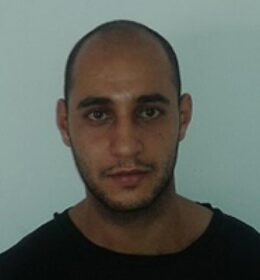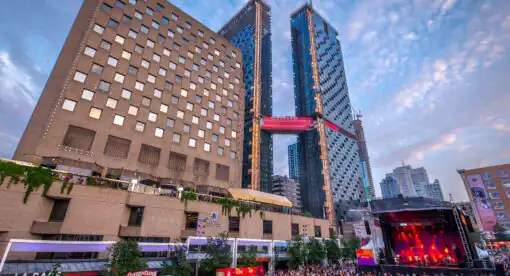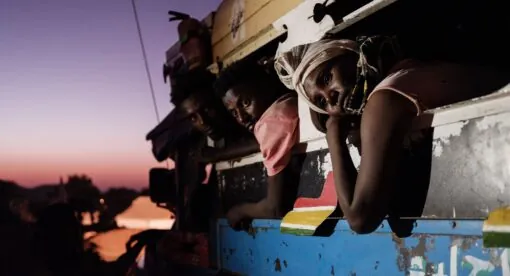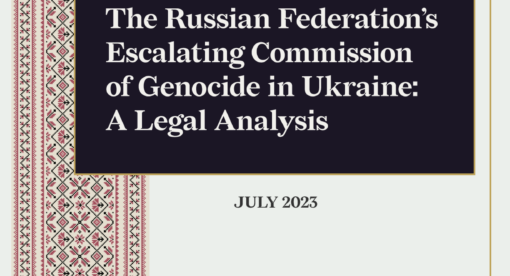A civilian government in Khartoum is key to resolving regional tensions.
The Sudanese military’s Oct. 25 coup, spearheaded by top commander Abdel Fattah Al-Burhan, is a troubling development in a country that is key to the stability of the Horn of Africa. Sudan is embroiled in several disputes in the region, including with Ethiopia over the Grand Ethiopian Renaissance Dam and a disputed strip of territory in east Sudan known as Al-Fashaga. Turmoil in Sudan can lead to a spillover of instability in Egypt. The United Arab Emirates and Saudi Arabia also have a vested interest in Sudan retaking the contested borderland to secure their agricultural investments.
The junta appears more interested in safeguarding its economic advantages, appeasing its regional sponsors, and boosting its own patriotic credentials than in resolving these disputes, meaning that bringing about an independent civilian government in Sudan is imperative If Western powers want a reliable partner in Khartoum to ease regional tensions. To do so, they must help restore genuine civilian governance through curtailing the Sudanese junta.
Catalysts for the Coup
Since the end of the three-decade rule of President Omar Al-Bashir in 2019, the Sudanese military has attempted to brutally crack down on protesters agitating for civilian rule, including the massacre of 120 civilians in Khartoum on June 3, 2019. Protesters were resilient, however, with tens of thousands of people marching in Khartoum on June 30 of that same year. This resilience – coupled with international pressure – forced the military to negotiate a power-sharing agreement that August with a broad civilian coalition known as the Forces for Freedom and Change (FFC).
According to the transitional charter governing the partnership, the Sovereign Council was created to oversee a mostly civilian cabinet headed by Prime Minister Abdallah Hamdok. The cabinet was supposed to assume day-to-day governance, but Burhan and his security allies often undercut the FFC in a bid to preserve their political economic interests. The military has resisted attempts to submit to civilian command out of fear of losing its dominating influence in the country. During negotiations, more radical and grassroots elements of the FFC warned that inking a deal with the military would merely postpone the day generals seized direct power.
A week before the October coup, the junta rallied thousands of protesters who seemingly yearned for military rule – though many of those who attended the pro-military protests told Egyptian online newspaper Mada Masr that they did not know why they were bused into the capital from the peripheries, and some said they saw security officials pay drivers and community leaders to herd people to Khartoum. Food and water were also distributed to incentivize more people to join.
Pro-democracy activists organized a separate protest on Oct. 21, which saw hundreds of thousands of people demonstrate their opposition to military rule. Those same protesters were joined by a wide array of professional associations following the Oct. 25 military takeover. Workers from the state oil company Sudapet, employees from the state airline Sudan Airways, and committees of doctors, bankers, and teachers all went on strike. But it has been the resistance committees – neighborhood groups with a horizontal command structure that coordinate and mobilize protests – that have spearheaded the street movement. In late October and November, these committees organized several large marches that saw hundreds of thousands of people protest against the junta.
Early on, these displays of popular resistance converged with international pressure. Soon after the coup, the World Bank halted $2 billion in disbursements to Khartoum, while the African Union suspended Sudan from its bloc. Germany also paused development cooperation, while the U.S. imposed the largest repercussions of any state by suspending $700 million in financial assistance.
The U.N Security Council also urged Burhan to restore the civilian-led government and to exercise restraint on protesters. Volker Perthes, who heads the United Nations Integrated Transition Assistance Mission in Sudan (UNITAMS), led negotiating efforts between Burhan and Hamdok while the latter was under house arrest. Perthes told Reuters that one proposal being entertained would see Hamdok reinstated, detainees released, and the state of emergency lifted. A new technocratic government more palatable to the army would then replace the current cabinet. Those components were part of the 14-point deal that Hamdok signed on Nov. 21 in the presidential palace.
Fallout from the Agreement
In a televised interview with Al-Jazeera, Hamdok said he signed the agreement to stop the bloodshed in the streets – an argument discredited by the fatal shooting of a 16-year-old boy by security forces in Omdurman during the signing ceremony – and to safeguard international aid.
However, his justification didn’t win him support. Former foreign minister Mariam al-Mahdi explained in a webinar that the FFC, which appointed Hamdok as prime minister in 2019, rejected the deal because they were excluded. Meanwhile, the resistance committees never saw Hamdok as their leader or representative. The pro-democracy movement had long been disillusioned with Hamdok for approving crippling austerity measures – with military backing – to qualify for debt relief. The lifting of energy subsidies over the summer was particularly painful, resulting in soaring inflation in July that made basic staples unaffordable for many. After the coup, resistance committees repeatedly stated their opposition to any form of negotiations or partnerships that legitimizes the junta. That’s why, in their view, Hamdok betrayed the street movement by returning to office.
Indeed, Hamdok’s reinstatement helps Burhan and Mohamad Hamdan Dagalo, the leader of the powerful paramilitary known as the Rapid Support Forces (RSF), save face. In the name of restoring the pre-coup power sharing agreement, both men will now push for the resumption of international development aid, without which they will struggle to compensate their rank-and-file and their respective constituents – a scenario that could incentivize them to reverse the coup. On the other hand, a resumption of aid could provide a financial incentive for people to join the military or allied militias.
The military is already a wealthy entity, controlling more than 250 civilian-oriented sectors through public holding companies that operate beyond civilian oversight. Some of these industries are among the most productive in Sudan’s economy, such as sesame and gum Arabic, and the military’s control over these sectors enables it to reap billions of dollars in untaxed revenue, enriching army commanders at the expense of the population. The military also keeps poor citizens dependent on handouts. The opacity of military enterprises further deters private investors, who fear that they would be at a major disadvantage if they compete against the army, which could operate without paying taxes and import fees, navigating red tape, or paying employees livable wages.
The RSF, for its part, has shadowy private enterprises that generate revenue into a web of offshore accounts. The force has long used its weapons to secure lucrative resources such as gold, as well as other business interests in rural Sudan – often while committing grave human rights abuses. What’s more, the RSF uses its wealth to provide social services to neglected populations in a bid to boost its own appeal while undermining the credibility of civilian politicians. However, this tactic has failed to win favor among the urban population.
Recommendations
To defang the junta, Washington and its partners should support protesters by threatening to sanction the economic assets of the military and RSF. Western leaders have leverage because Burhan and Hemeti cannot run a country or maintain their support bases without securing billions of dollars in debt relief and development support. This strategy needs to be part of a comprehensive effort to restore Washington’s credibility and that of its partners among Sudan’s broad, fluid, and heterogenous civil society movement. This is a monumental task since resistance committees, youth, the Sudanese Professionals Association, and trade unions have lost faith in Western efforts due to the global community’s insistence on restoring the pre-coup power-sharing agreement – a solution that would only delay the military’s next power grab.
Washington can start by appointing an in-country ambassador as former Secretary of State Mike Pompeo promised to do two years ago. Having an ambassador on the ground would help the U.S. reduce its knowledge deficit of Sudan while gradually building trust with resistance committees. This strategy must be part of a long-term commitment that aims to inspire confidence that the U.S. is competent and acting in good faith. Once a sufficient level of trust and knowledge is gained, the U.S. should explore ways to financially support resistance committees while sponsoring forums that encourage dialogue between activists in Sudan’s urban quarters and the peripheries. U.S. policy in Sudan should be fundamentally geared toward supporting bottom-up democratic structures.
A parallel effort to push for security sector reform is imperative. This would involve using the threat or imposition of sanctions to persuade Burhan to step down as chairman of the Sovereign Council and the military to open its books on companies that it agreed to transfer to civilian hands in March. Washington could consider the Global Magnitsky Act, which was conceived to freeze the assets of and ban foreign persons from entering America if they’re deemed to have committed grave human rights abuses or been involved in high-level corruption. The Magnitsky Act would effectively stop Burhan and his accomplices from sustaining their regime through profits from military-owned companies, selling gold illicitly, or leasing out mercenaries to Russia, which uses a notorious quasi-private security company known as the Wagner Group to secure geopolitical gains.
Offering incentives such as promising to boost funding and provide training to professionalize the military could allow Burhan to save face after withdrawing from politics and surrendering control of civilian economic sectors. Western governments should identify mid-level army commanders capable of replacing the old guard and of imagining a new, constructive role for the military. Perhaps these new commanders would be more willing to make concessions if they believe the army isn’t at risk of becoming a secondary force in Sudan. To assuage their concerns, Washington could sanction the RSF if the group refuses to submit to the command of the Defense Ministry. The prospect of sanctions would pose an inconvenience to the UAE, a lucrative businesses partner of the RSF – thereby pushing the former to encourage the latter to cooperate with military and civilian leaders in the transition.
But before resorting to punitive measures, attempts should be made to persuade Hemeti to integrate his forces into the army by promising him legitimacy and training as part of a larger effort to reform the security forces. The key would be to help Hemeti present himself as a victor to his constitutes, as well as a patriot for making major concessions.
Any measure to rein in the RSF also requires the civilian camp – anchored by grassroots leaders as well as political elites – to strike a closer alignment with rebel groups that signed the Juba Peace Agreement in October 2019. That would include making sure that rebel leaders and their constituents are represented in government without crowding out civil society voices from the peripheries. Without striking such a balance, Hemeti could characterize any move against him as an attempt to sideline the peripheries, which could in turn appeal among opportunists, helping to forge alliances that could trigger renewed conflict and spoil the transition. This is a possible outcome considering how militarized Darfur alone has become over the last two decades.
Civilian representatives do have some leverage, however, over Hemeti’s fear of being held accountable for the RSF’s leading role in the 2019 massacre. For example, leaders could offer him immunity from prosecution if he integrates his forces into the army and steps down from government. While this would be a controversial decision, it could save lives in the future by defanging a violent paramilitary that operates independently of the state. This would equally reduce the possibility that the security forces clash or fracture, triggering internal conflict.
Equally vital is for the White House to push its regional allies to understand that military rule does not protect their interests in the Horn of Africa in the long term. Saudi Arabia, the UAE, Egypt, and Israel view Sudan through a security lens and typically oppose any democratic project in the region out of fear that it could inspire protest movements in their own countries – in the case of Israel, among marginalized and occupied Palestinians. Secretary of State Antony Blinken and U.S. envoy for the Horn of Africa Jeffrey Feltman should be tasked with persuading these regional players to view a civilian-run Sudan as vital to their own interests.
This could be achieved by highlighting the uneasy alliance between the military and RSF, which could become unmanageable over time. Many hard-line army officers, who are traditionally from the center and north of the country, detest the RSF since they believe that the force encroaches on their own pre-ordained right to rule Sudan. Regional players would do well to realize that any internal strife could trigger refugee flows, embolden extremist groups, and endanger the agricultural investments of the Gulf, which views Sudan as a vital breadbasket.
However, these efforts will prove futile if Washington and its partners sideline the protest movement to impose these initiatives. The only way forward is to support – not undermine – grassroots networks. They are the last line of defense for Sudan’s democratic aspirations.
Mat Nashed is a veteran journalist specializing in the Middle East and North Africa. Over the last decade, he has reported extensively on state repression, geopolitics, and the plight of migrants and refugees. He has reported from Turkey, Egypt, Lebanon, Tunisia, and Sudan, with bylines appearing on international outlets such as Al-Jazeera, VICE, OZY, The New Humanitarian, and the Committee to Protect Journalists. He tweets at @matnashed.
The views expressed in this article are those of the author and not an official policy or position of the New Lines Institute.






